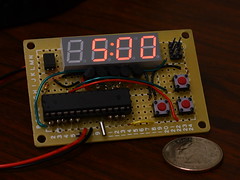A portion of this post was originally part of the Tension, Suspense and Surprise series.
In science, the Heisenberg Uncertainty Principle states, basically, that if you know an object’s momentum, you cannot know its precise location at the exact same time. And to apply this principle in writing . . . okay, I’m pretty much just stealing the name because of the word “Uncertainty.”
Uncertainty doesn’t sound like something we want in our fiction, unless we’re going for experimental or highly literary works. But I think that uncertainty—and its cousin, surprise—are a vital part of a work in any genre.
Uncertainty is what keeps people reading. We have to know if the hero and heroine will get together, or if they’ll defeat the bad guys, etc. The principle actually comes straight from real life (and neuroscience):
Livia Blackburne posted a fascinating study on uncertainty in romance: when college-aged women were shown profiles of men who’d seen and rated the women’s profiles, the women were most attracted to the men when they were not told whether the men had rated them average or highly.
The uncertainty made all the difference—the women who were told the men (imaginary, by the way) rated them highly were interested, but not as much as the uncertain women. The uncertain women also reported thinking about the men more often.
For a writer, uncertainty is a powerful tool, and not just in romance. The uncertainty in any story question is a major factor in keeping people reading, and the question of a developing relationship is the biggest draw in a romance (which, it should be noted, is heavily read by women, of course).
I think part of the reason why that uncertainty is so appealing is that the outcome is something we might not expect. While it’s definitely possible to build the uncertainty around something we’re pretty sure will happen (romance and mysteries generally only have one option for a successful ending, and there’s uncertainty throughout), it’s important to remember that a jolt of something unpredictable is vital for a fresh read.
Or, as Arthur Plotnik says in Spunk & Bite: A Writer’s Guide to Bold, Contemporary Style:
Scientists have identified a patch of the forebrain called the nucleus accumbens as a center of pleasure in humans. Imaging shows heightened activity in this area of the brain when people receive a reward—whether sugar treats, money, or drugs. . . .
Unpredictable stimuli excite the nucleus accumbens, while expected stimuli elicit no response. In the experiment that led to this conclusion, researchers Gregory Bruns (Emory University) and E. Read Montague (Baylor College of Medicine) administered squirts of Kool-Aid and plain water to human test subjects in either predictable (alternating) or random patterns. Pleasure-wise, random squirts won it all.
A fresh locution may not be quite the same as Kool-Aid, but writers can extrapolate from the experiment’s conclusion: Brains love that little squirt of surprise. (12)
Uncertainty, and the tension and suspense that come from it, and unexpectedness are both really important in a novel. When you’ve got a huge event coming in your novel you have two choices. You can lead up to it with a lot of anticipation, promises, foreshadowing and/or dramatic irony—building suspense, making it uncertain whether it will happen, generally getting readers anxious. Or you can throw your readers for a loop and just drop it on them (though at least a little foreshadowing is usually good here—hence the spectrum).
Alfred Hitchcock has famously explained the difference (emphasis added):
 There is a distinct difference between ‘suspense’ and ‘surprise’, and yet many pictures continually confuse the two. I’ll explain what I mean.
There is a distinct difference between ‘suspense’ and ‘surprise’, and yet many pictures continually confuse the two. I’ll explain what I mean.
We are now having a very innocent little chat. Let us suppose that there is a bomb underneath this table between us. Nothing happens, and then all of a sudden, ‘Boom!’ There is an explosion. The public is surprised, but prior to this surprise, it has seen an absolutely ordinary scene, of no special consequence. Now, let us take a suspense situation. The bomb is underneath the table, and the public knows it, probably because they have seen the anarchist place it there. The public is aware that the bomb is going to explode at one o’clock and there is a clock in the décor. The public can see that it is a quarter to one. In these conditions this same innocuous conversation becomes fascinating because the public is participating in the scene.
The audience is longing to warn the characters on the screen: ‘You shouldn’t be talking about such trivial matters. There’s a bomb underneath you and it’s about to explode!’
In the first case we have given the public fifteen seconds of surprise at the moment of the explosion. In the second case we have provided them with fifteen minutes of suspense. The conclusion is that whenever possible the public must be informed. Except when the surprise is a twist, that is, when the unexpected ending is, in itself, the highlight of the story.
—Hitchcock by François Truffaut, p 79-80, as quoted by senses of cinema
Not to disagree with my good friend Alfred, but both surprise and suspense are important. For major events and big promises, suspense is generally better. But for smaller events—especially things that don’t need the extra explaining and won’t live up to the level of suspense—surprise is a great thing.
If we lead up to all the events in a story, we run the risk of being too predictable. If we lead up to none of them, our readers are more likely to experience PTSD than suspense. One is probably better for your event and your story.
How do you determine whether your event should be a surprise or be used to create suspense? Hitchcock’s guideline is a starting place: if it’s a twist ending, surprise is pretty dang important. On the other hand, if that surprise would heighten the suspense throughout the book (without dragging it out too much) and if you can set it up for the audience to know without informing the characters, you could think about whether you could use the extra layer of suspense.
Conversely, consider whether you spend too long building up to minor events—what if you cut all the foreshadowing? Would the reader be slighted or delighted when the surprise is sprung?
What do you think? How do you decide whether an event will be used for suspense or surprise?
Photo by Invizible Man
 One of the things I love most about writing is the capacity to learn. I love learning! At times it seems overwhelming because there is so much that I need to learn, to master, and I’ve already been working hard on my craft for over a decade. On the flip-side, writing will never be stale to me because there is always room for improvement. Thank goodness I enjoy a good challenge—usually!
One of the things I love most about writing is the capacity to learn. I love learning! At times it seems overwhelming because there is so much that I need to learn, to master, and I’ve already been working hard on my craft for over a decade. On the flip-side, writing will never be stale to me because there is always room for improvement. Thank goodness I enjoy a good challenge—usually! 



 And let’s face it, these clues are a tough balancing act. We have to let the reader know there’s something coming for them, that these events that don’t seem significant will be—but at the same time, we can’t build small things up too much, or we’ll disappoint our readers instead of rewarding them with the payoff, and probably more importantly, we don’t want to give away the coming twists.
And let’s face it, these clues are a tough balancing act. We have to let the reader know there’s something coming for them, that these events that don’t seem significant will be—but at the same time, we can’t build small things up too much, or we’ll disappoint our readers instead of rewarding them with the payoff, and probably more importantly, we don’t want to give away the coming twists. James Scott Bell highlights one reason why these elements are so important: “Modulating tension is one of the keys to writing fiction” (
James Scott Bell highlights one reason why these elements are so important: “Modulating tension is one of the keys to writing fiction” ( looking at my own work.
looking at my own work.